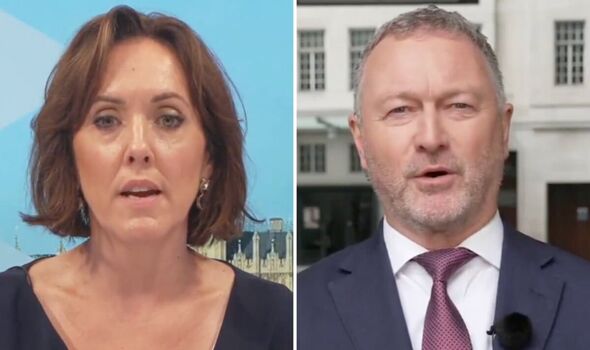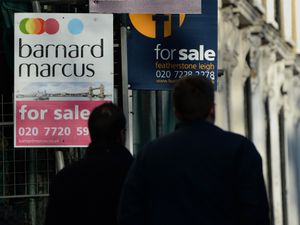Politics
Labour Minister Faces Criticism Over Youth Voting Age Debate

A debate on lowering the voting age in the United Kingdom intensified when Labour Minister Steve Reed was questioned by Camilla Tominey on GB News about Labour’s proposal to allow 16-year-olds to vote. During the interview, Reed struggled to recall the legal age for marriage, which became a focal point of criticism regarding the party’s plans.
The controversy surfaced after Deputy Prime Minister Angela Rayner defended the idea, stating that if 16-year-olds can marry, they should be allowed to vote. Reed, when prompted about the legal age for marriage, initially hesitated, stating, “To be legally married in the UK, you’ll have to, I don’t know, tell me how old. 16? 18?” After being informed that the correct age is 18, he emphasized that allowing 16 and 17-year-olds to vote was part of Labour’s manifesto, which received a majority in the House of Commons.
Reed further explained, “Well, having votes at 16 was something that we put in our manifesto. Now we’re getting ahead and we’re implementing our manifesto. Sixteen and 17-year-olds can already vote in certain elections in Scotland and Wales. I think it’s reasonable to give young people a say in national elections here in the UK as well.”
Tominey responded critically, questioning why senior politicians like Rayner and Reed do not know basic laws of the UK. The Labour Party recently outlined plans to extend voting rights to 16 and 17-year-olds for the next general election, aligning with existing practices in Scotland and Wales.
In support of the initiative, Prime Minister Sir Keir Starmer stated, “It is important to lower the voting age as 16-year-olds are old enough to work and pay in through tax, so should have the opportunity to say how they want their money spent.”
Despite this push, public opinion appears mixed. A recent poll conducted by ITV News and Merlin Strategy revealed that only half of the 500 respondents aged 16 and 17 believed they should be allowed to vote, with just 18% indicating they would definitely participate in elections.
If implemented, Labour could potentially benefit from the youth vote, as the same poll indicated that 33% of respondents would support the Labour Party, compared to 20% for Reform UK and 18% for the Green Party.
This initiative has not gone without criticism. The Conservative Party and Nigel Farage‘s Reform UK have voiced their disapproval of Labour’s plans, suggesting that the proposal is politically motivated rather than genuinely beneficial for young people.
As the discussion continues, the political landscape in the UK remains charged over the issue of voting rights for younger citizens, which could have significant implications for future elections.
-

 World2 months ago
World2 months agoCoronation Street’s Shocking Murder Twist Reveals Family Secrets
-

 Entertainment2 months ago
Entertainment2 months agoAndrew Pierce Confirms Departure from ITV’s Good Morning Britain
-

 Health5 months ago
Health5 months agoKatie Price Faces New Health Concerns After Cancer Symptoms Resurface
-

 Health2 weeks ago
Health2 weeks agoSue Radford Reveals Weight Loss Journey, Shedding 12–13 kg
-

 Entertainment6 months ago
Entertainment6 months agoKate Garraway Sells £2 Million Home Amid Financial Struggles
-

 Entertainment5 months ago
Entertainment5 months agoAnn Ming Reflects on ITV’s ‘I Fought the Law’ Drama
-

 World3 months ago
World3 months agoBailey Announces Heartbreaking Split from Rebecca After Reunion
-

 Entertainment2 months ago
Entertainment2 months agoDavid Jason and Nicholas Lyndhurst Eye Reunion for Only Fools Anniversary
-

 Entertainment3 months ago
Entertainment3 months agoCoronation Street Fans React as Todd Faces Heartbreaking Choice
-

 Entertainment2 months ago
Entertainment2 months agoBradley Walsh Sparks Strictly Come Dancing Hosting Speculation
-

 World3 months ago
World3 months agoEastEnders’ Nicola Mitchell Faces Unexpected Pregnancy Crisis
-

 Entertainment2 months ago
Entertainment2 months agoTwo Stars Evicted from I’m A Celebrity Just Days Before Finale




















